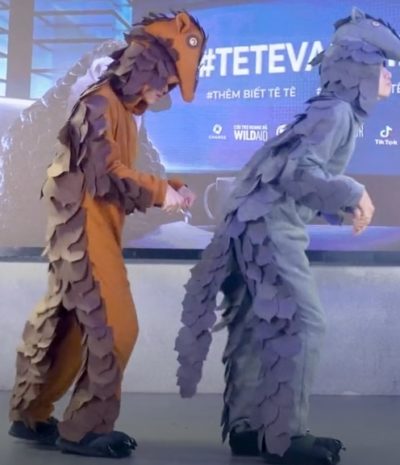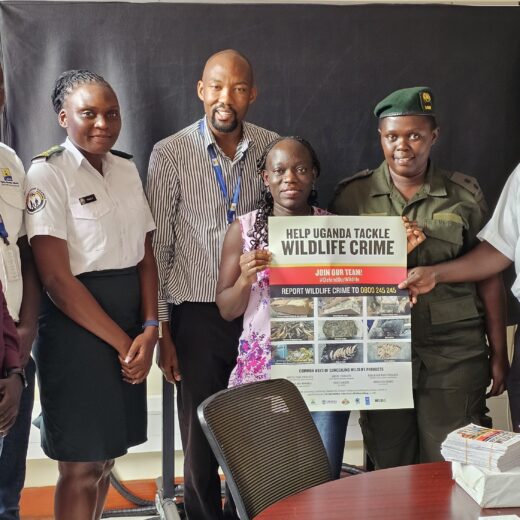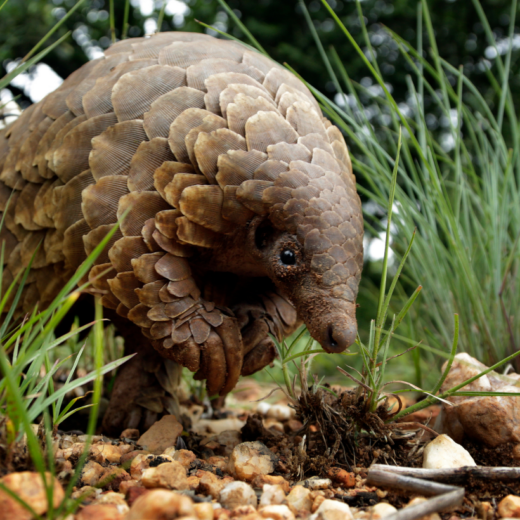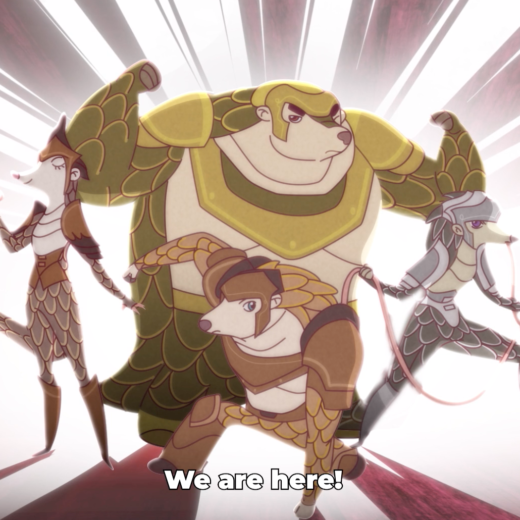
Ho Chi Minh City, Vietnam – Popular Vietnamese choreographer, Quang Dang today launched his new dance video to encourage the general public to protect the endangered pangolin.
In the video, Quang Dang, who created the worldwide viral ‘Washing Hands’ dance in 2020, is dressed as a pangolin and dances to a specially developed choreography to support WildAid and CHANGE’s ‘Pangolins Are Still Endangered’ public awareness campaign, with the message “the more we know, the less we harm pangolins.”
@im.quangdang Cùng Đăng giúp BTV Tê Tê on top trending chứ không phải đầu bảng sách đỏ với điệu nhảy “Tê Tê vẫn thế" nhé@bantinnguoi #tetevanthe#bantinnguoi
♬ nhạc nền - QUANG ĐĂNG
Sharing his motivation for creating the dance, Quang Dang said: “The pangolins I’ve seen were not in the wild but on TV, in the news or in a documentary and were injured, trapped in small cages or even stored frozen in a fridge… It’s too painful to watch. I want to express my concern for pangolins through my dance moves.”
“Pangolins cannot speak up for themselves, but we can speak out for them. I believe everything can change for the better if we all start to spread the message to protect pangolins. One small change can rescue a pangolin’s life. Dance with me and let’s spread the message through our dance moves,” Dang added.
The ‘Pangolins Are Still Endangered’ campaign launched on May 6, with the ‘Not-So Breaking News’ video PSA. In the video a pangolin news reporter character, speaks out to raise the alarm on the plight of his fellow pangolins and calls on viewers to help protect his kind.
“We hope the Vietnam general public will join in Quang Dang’s new dance and spread the word to save pangolins. As one of the world’s top consumers of wildlife products, Vietnam needs to take action to protect pangolins and other endangered wildlife,” said Mr. Tran Hien, MarCom Manager at WildAid Vietnam and CHANGE.
Pangolins have long been believed to be a cure and traditional medicine in Asia. Whole or parts of pangolins such as scales and fetuses are popular ingredients in high demand. Not only are pangolins poached for traditional medicine, but they are also hunted for food. Pangolin meat and products are considered a luxury throughout Asia and are viewed as a status symbol.
According to an International Union for Conservation of Nature (IUCN) report, more than 1 million pangolins have been illegally traded in just ten years, making them the most trafficked mammals in the world. The IUCN estimates that a pangolin is captured from the wild every 5 minutes, totaling over 200,000 pangolins annually. Vietnam plays a prominent role in the supply chain and is one of the leading countries in supplying, importing and consuming pangolin products. More than 8 tons of pangolin scales were seized in 2019, making Vietnam the world leader in the number of pangolin scales seized. According to a WCS report, in the last 30 years, Vietnam has lost about 80-90% of its pangolin population due to illegal hunting and consumption.
Poaching and trading of pangolins has continued globally throughout the pandemic, despite the potential role the wildlife trade may have played in the transference of COVID-19 from animals to humans. Throughout the pandemic wildlife officials in Vietnam have uncovered, seized and destroyed pangolins at restaurants or in transit in shipments. In many cases the courier was unaware that pangolins were protected and that trafficking them was a crime that carries punishments of up to 15 years in prison.
The ‘Pangolins Are Still Endangered’ campaign is made possible through the generous support of the Pangolin Crisis Fund, Royal Netherlands Embassy and media partners Chicilon Media, Movad, Dinosaur Vietnam and TikTok.
Stay in touch and get the latest WildAid updates.
SIGN UP


